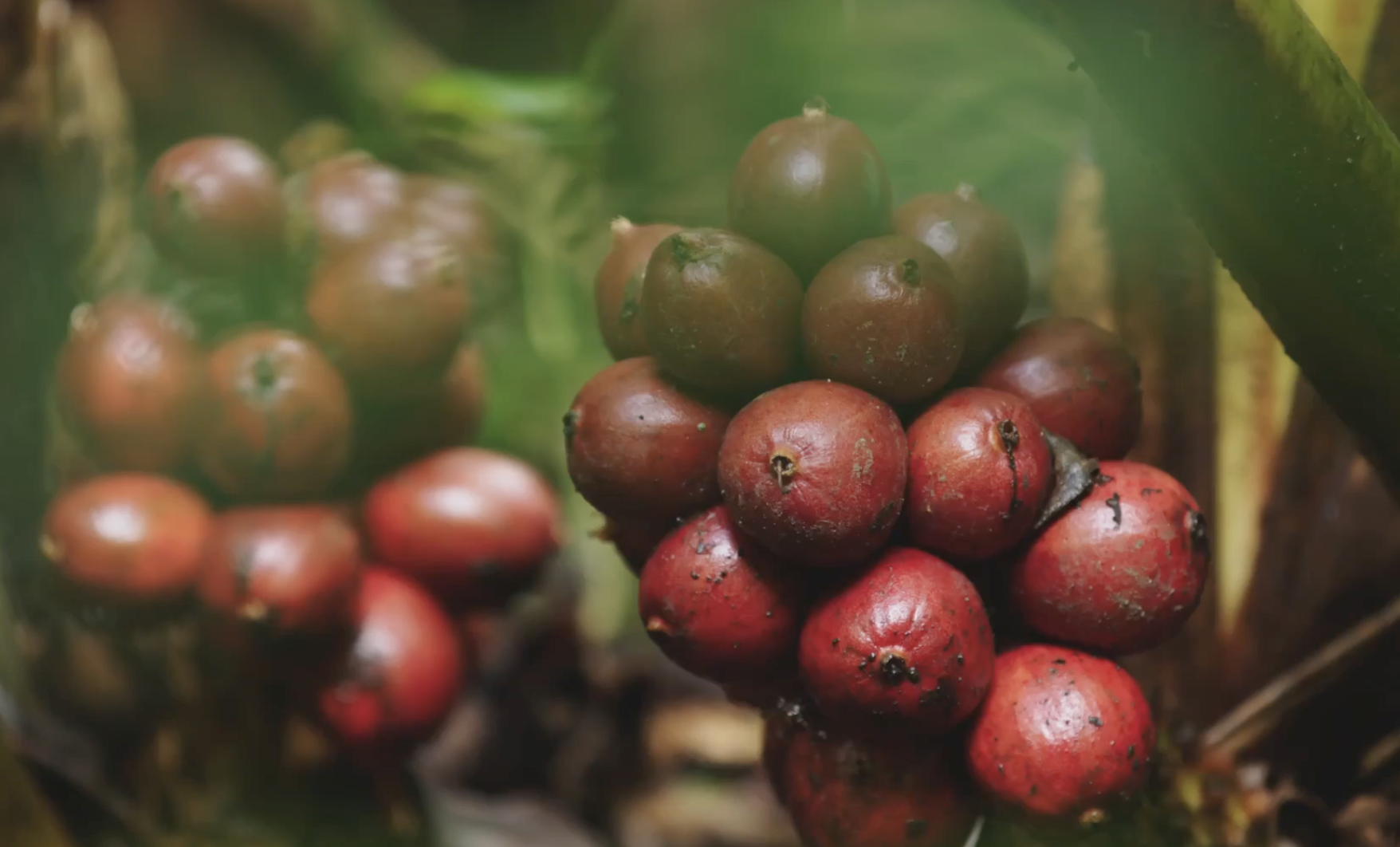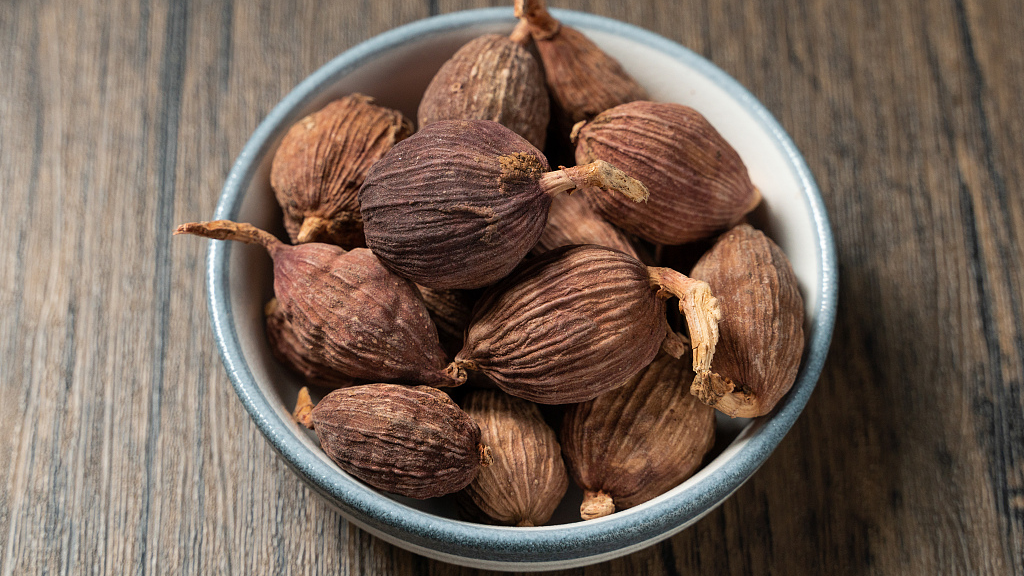If you are a chef, you may be familiar with a spice used in Chinese cooking. If you are a doctor, you may be aware of an herb used in traditional Chinese medicine. It is Amomum tsaoko, or Chinese black cardamom.
Amomum plants prefer warm and humid climate, and are found in Yunnan, Guangxi and other places in China. This provides an opportunity for villagers of the Dulong ethnic minority to lift themselves out of poverty in Kongdang Village, Gongshan County, south China's Yunnan Province.

Amomum tsaoko, or Chinese black cardamom. /CGTN Nature
Amomum tsaoko, or Chinese black cardamom. /CGTN Nature

Amomum plants grow in Kongdang Village, Gongshan County, south China's Yunnan Province. /CGTN Nature
Amomum plants grow in Kongdang Village, Gongshan County, south China's Yunnan Province. /CGTN Nature
Dulong people used to live on the mountain and hunt for a living. Kong Mingguang followed his ancestors' path. In 2009, with the support of the local government, his family moved to Kongdang Village instead of sleeping in the thatched house on the mountain.
After moving down the mountain, Kong became an ecological forest ranger with the monthly pay of 800 yuan (about $116), enough to feed the family. In 2013, the local government introduced amomum planting techniques. Kong has planted about 1.7 hectares of amomum and his annual income is about 50,000 yuan (about $7,240). The family was lifted out of poverty in 2018.

Dried Amomum tsaoko. /CFP
Dried Amomum tsaoko. /CFP
Kong is not the only person who has benefited from planting amomum. By 2021, the planting area of amomum in Gongshan County had reached about 23,160 hectares, with a total output of 7,625 tonnes and an output value of 67.2 million yuan (about $9.7 million). More than 6,000 households saw a per capita income increase of more than 2,000 yuan (about $290).
The long-term technical guidance and training from the government promoted the sustainable and stable development of amomum industry. Now the industry has become an important economic pillar for all ethnic groups in the county.
About 'Life-changing Seeds' Series:
Greenery has been a vital part in China's fight against poverty. Numerous farmers have been lifted out of poverty because of the plants they grow on their farmland, especially the unique ones and those endemic to a certain area. As China's most important political event, the Two Sessions, is underway, CGTN Nature selects five stories of how plants have helped in the country's efforts to improve residents' well-being. Stay tuned!
To learn more:
Revival in the Mountains | Episode 8: Home Guardians
(If you want to contribute and have specific expertise, please contact us at nature@cgtn.com.)